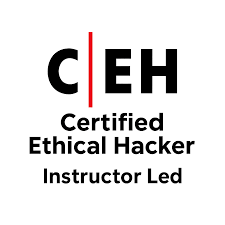Palo Alto Training – Learn Palo Alto Firewalls in 2025

In the world of cybersecurity, few certifications carry the same weight and reputation as the Offensive Security Certified Professional (OSCP). Offered by Offensive Security, the OSCP has earned recognition for its hands-on, real-world approach to penetration testing and ethical hacking. Unlike multiple-choice exams that test theoretical knowledge, the OSCP demands technical expertise, persistence, and practical […]

In the world of cybersecurity, few certifications carry the same weight and reputation as the Offensive Security Certified Professional (OSCP). Offered by Offensive Security, the OSCP has earned recognition for its hands-on, real-world approach to penetration testing and ethical hacking. Unlike multiple-choice exams that test theoretical knowledge, the OSCP demands technical expertise, persistence, and practical problem-solving skills under pressure.
For aspiring ethical hackers, penetration testers, or red teamers, achieving the OSCP is considered a major milestone. It not only validates technical skills but also signals a candidate’s ability to think critically, adapt quickly, and work through high-pressure hacking scenarios.
The OSCP is a certification awarded after completing Offensive Security’s Penetration Testing with Kali Linux (PWK/PEN-200) course and passing its notoriously difficult exam. The exam involves a 24-hour practical hacking session where candidates must breach multiple machines in a controlled environment, followed by a detailed report submission within another 24 hours.
The course and exam simulate real-world penetration testing engagements, pushing candidates to apply techniques from reconnaissance to post-exploitation, all while documenting findings professionally.
The OSCP’s value lies in its difficulty and realism. Unlike traditional certifications, the OSCP:
As a result, OSCP holders are seen as battle-tested professionals capable of executing advanced penetration tests, identifying security flaws, and thinking like real attackers.
The OSCP curriculum is built around core skills in offensive security:
All of these skills are tested hands-on in the exam lab, reinforcing their practical importance.
The exam spans 24 hours, during which candidates must compromise a series of target machines. Each machine carries a point value, and candidates must score at least 70 out of 100 points to pass.
After the hands-on exam, candidates have another 24 hours to submit a comprehensive penetration test report. This report mimics real client deliverables, detailing how vulnerabilities were discovered, exploited, and how they can be remediated.
The OSCP is ideal for cybersecurity professionals who want to advance into roles like:
It’s not an entry-level certification. Ideal candidates should already have:
If you’re a beginner, it’s recommended to build foundational knowledge first through certifications like CompTIA Security+, eJPT, or PNPT before tackling the OSCP.
The OSCP can be purchased in different packages based on lab access:
Each package includes the PEN-200 course, the exam attempt, and lab time. Additional lab access and retakes can be purchased separately.
For official pricing and registration, visit the Offensive Security OSCP page.
There are many communities and resources to support your journey, including forums, blogs, and dedicated OSCP preparation courses. One excellent community reference is the Reddit r/oscp forum.
The OSCP certification stands as a gold standard for offensive security professionals. Its hands-on, performance-based approach distinguishes it from traditional certifications and ensures that those who pass are truly capable in the field of ethical hacking. It’s more than a certificate—it’s a rite of passage for serious cybersecurity practitioners.
If you’re ready for the challenge and eager to test your skills in a real-world hacking environment, the OSCP could be your next big leap in cybersecurity.
Get certified with industry-leading cybersecurity certifications from EC-Council, PECB, Palo Alto Networks, and more.

Learn from world-class instructors Collaborate with top professionals Advanced training...

The CEH is the world's leading cybersecurity certification, recognized by...

Onsite training course Led by an instructor Interactive sessions

Asynchronous, self-study environment Video-streaming format Flexible learning schedule
Adding {{itemName}} to cart
Added {{itemName}} to cart

